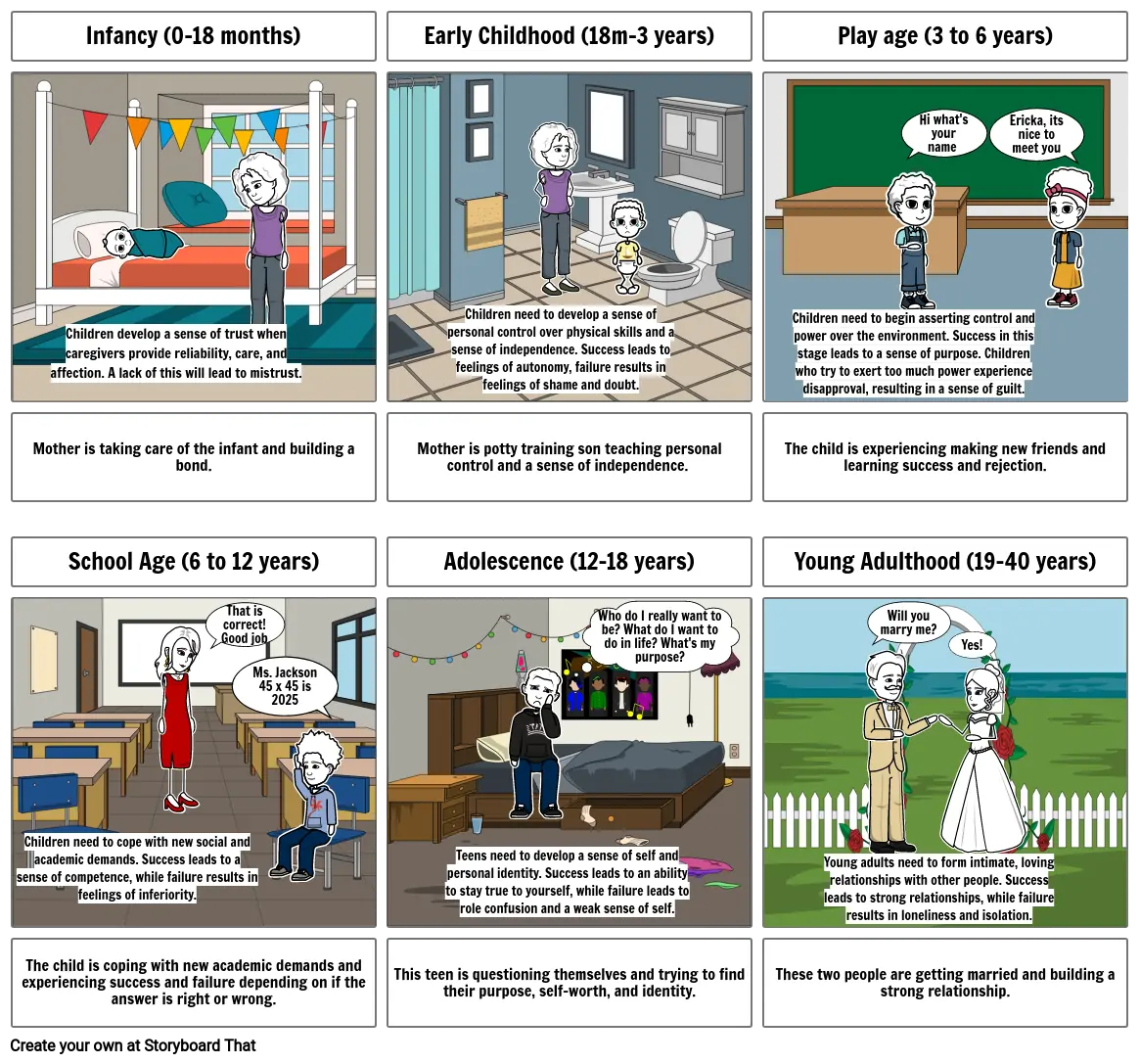erikson stages

Siužetinės Linijos Tekstas
- Infancy (0-18 months)
- Children develop a sense of trust when caregivers provide reliability, care, and affection. A lack of this will lead to mistrust.
- Early Childhood (18m-3 years)
- Children need to develop a sense of personal control over physical skills and a sense of independence. Success leads to feelings of autonomy, failure results in feelings of shame and doubt.
- Play age (3 to 6 years)
- Children need to begin asserting control andpower over the environment. Success in thisstage leads to a sense of purpose. Children who try to exert too much power experience disapproval, resulting in a sense of guilt.
- Hi what's your name
- Ericka, its nice to meet you
- Mother is taking care of the infant and building a bond.
- School Age (6 to 12 years)
- That is correct! Good job
- Ms. Jackson 45 x 45 is 2025
- Mother is potty training son teaching personal control and a sense of independence.
- Adolescence (12-18 years)
- Who do I really want to be? What do I want to do in life? What's my purpose?
- The child is experiencing making new friends and learning success and rejection.
- Young Adulthood (19-40 years)
- Will you marry me?
- Yes!
- Children need to cope with new social and academic demands. Success leads to a sense of competence, while failure results infeelings of inferiority.
- The child is coping with new academic demands and experiencing success and failure depending on if the answer is right or wrong.
- This teen is questioning themselves and trying to find their purpose, self-worth, and identity.
- Teens need to develop a sense of self and personal identity. Success leads to an abilityto stay true to yourself, while failure leads torole confusion and a weak sense of self.
- These two people are getting married and building a strong relationship.
- Young adults need to form intimate, loving relationships with other people. Success leads to strong relationships, while failure results in loneliness and isolation.
Sukurta daugiau nei 30 milijonų siužetinių lentelių

